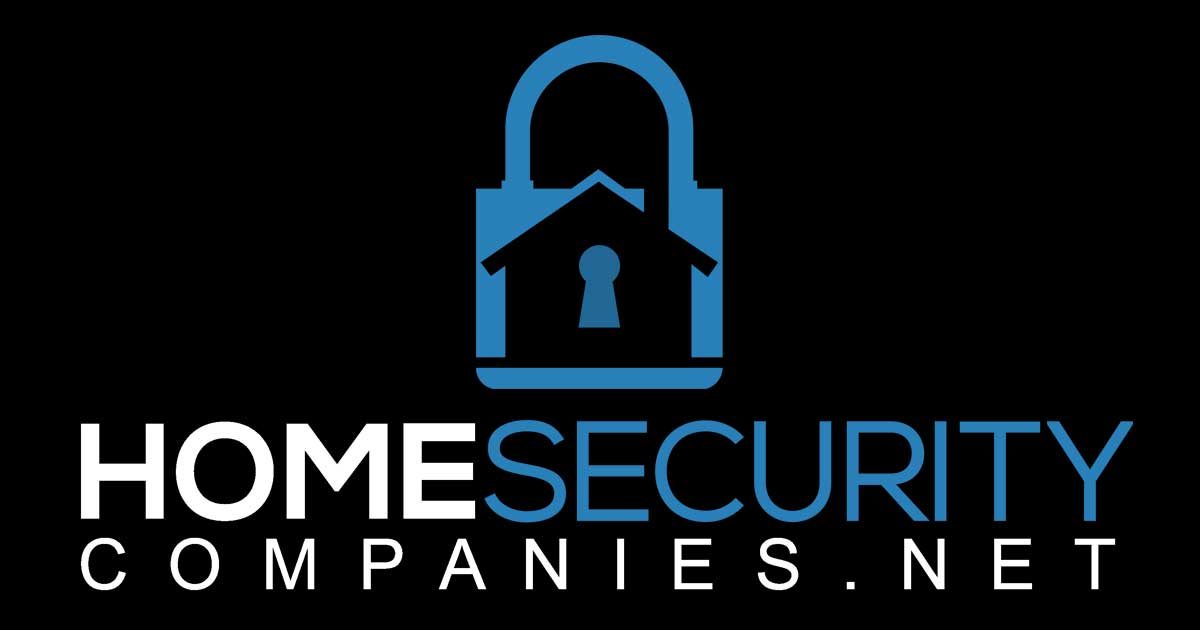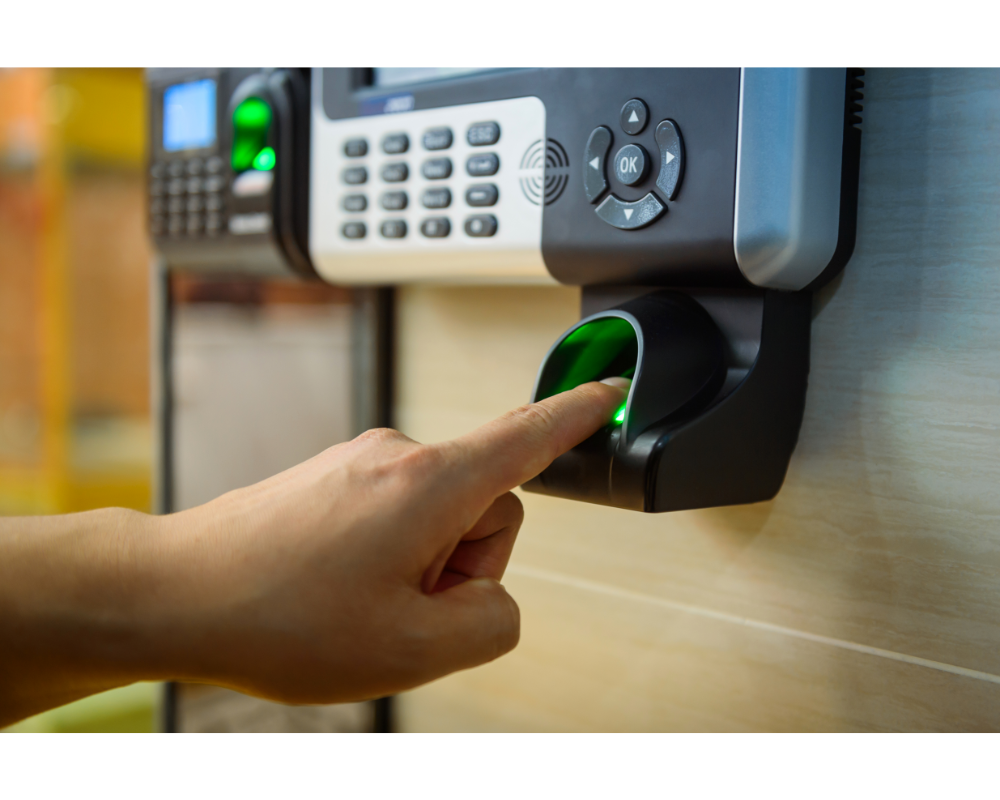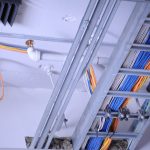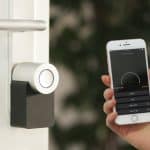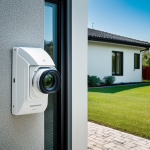When it comes to securing your home, a variety of options are available. From traditional locks and alarms to more advanced technologies like access control systems, homeowners have many choices to keep their property safe.
In this article, we’ll discuss one such option: access control systems. Access control systems refer to the security measures put in place to limit who can enter or exit a building or certain areas within it. These types of systems typically incorporate some electronic devices, such as key cards or biometric scanners, that allow authorized individuals entry while keeping others out.
Whether you’re looking for increased safety at home or on your business property, an access control system may be just what you need. So let’s dive into these useful tools’ various types and features, which can provide you with peace of mind knowing your spaces are protected from unauthorized entry.
What Are Access Control Systems?
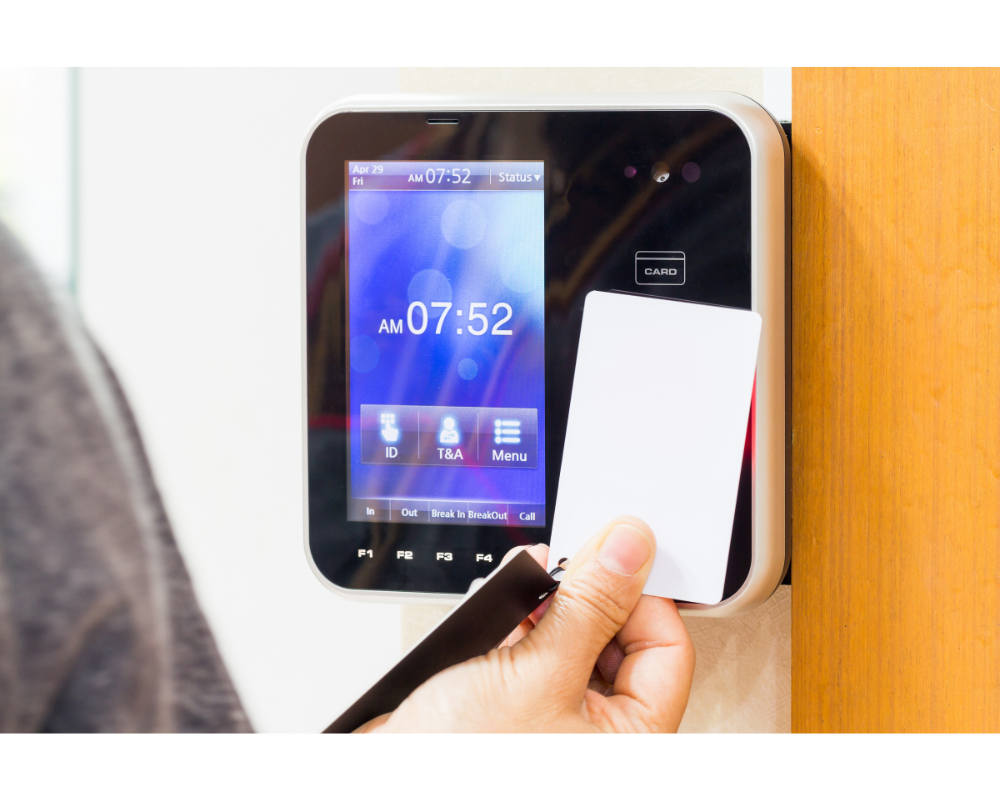
Imagine that your home is a fortress, and every door and window is an entrance into your castle. Now imagine that you have complete control over who can enter and exit those entrances.
This is the power of access control systems. An access control system allows homeowners to manage who can enter their property or specific areas. With integration into other security equipment, such as cameras and alarms, these systems provide added layers of protection against potential intruders.
Of course, with any security system comes a cost. However, when considering the value of protecting yourself, loved ones, and assets from harm, the cost analysis becomes insignificant. Access control systems are not only a sound investment in your safety but also offer peace of mind knowing that you have total control over who enters your kingdom.
The Benefits of Access Control Systems
Access control systems are a crucial part of modern home security. They offer many benefits that traditional locks and keys cannot match.
One of the main advantages of access control systems is remote access, which allows homeowners to monitor and control their homes from anywhere in the world. With remote access, you can lock or unlock doors, view surveillance footage, and receive alerts if there is any suspicious activity at your home. This level of control brings peace of mind to homeowners who want to keep an eye on their property while they’re away. It’s also useful for granting temporary access to guests or service providers without giving them a key physically.
Another benefit of access control systems is their cost-effectiveness. While they may seem like a significant investment initially, they save money in the long run by reducing the need for rekeying when keys are lost or stolen. Additionally, companies that provide access control systems typically offer maintenance plans that help prevent costly repairs down the line.
Overall, access control systems provide convenience, flexibility, and increased security compared to traditional locks and keys. With features such as remote access and cost-effectiveness, it’s easy to see why more and more homeowners are choosing this technology for their homes.
Types of Access Control Systems
As technology advances, the options for access control systems become more diverse. One of the newest and most popular types is wireless access control. This system allows for easy installation without needing to run wires throughout your home or business.
Wireless access control utilizes radio frequency identification (RFID) technology to grant entry to authorized individuals. Each person is given a unique key fob or card that they present to a reader at the entrance point. The reader then communicates with the control panel, which grants or denies access based on pre-set permissions.
Another important aspect of modern access control systems is integration. Access control integration involves connecting all security components, such as cameras, alarms, and intercoms, into one cohesive system. This not only simplifies management but also enhances overall security by allowing for real-time monitoring and response to potential threats.
By incorporating wireless access control and integrating all security components, you can have peace of mind knowing that your property is well protected against unauthorized entry. Consult with a professional in home security equipment to determine which type of access control system best suits your needs.
Key Card Access Control Systems
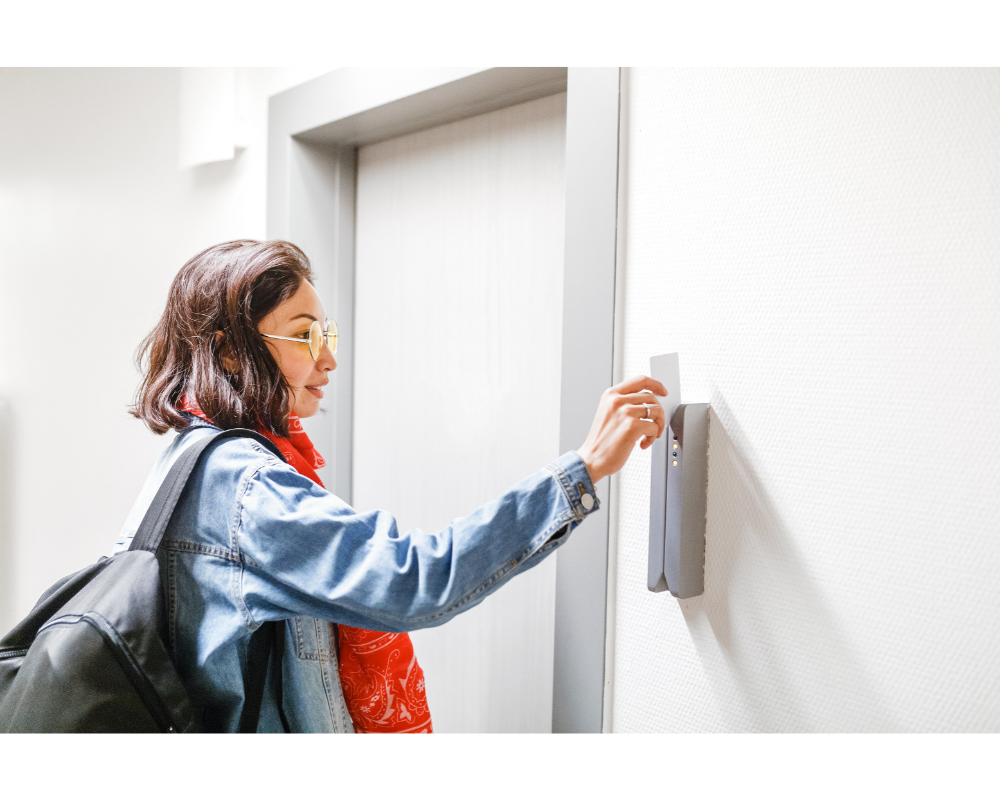
Moving on from the types of access control systems, let’s take a closer look at key card access control systems. These are popular options for businesses and apartment complexes due to their convenience and security features.
The installation process for a key card access control system involves mounting card readers at entry points and connecting them to a central database. Each user is given a unique swipe card that can be programmed with specific permissions, such as which doors they have access to and during what times.
When it comes to a cost comparison, key card access control systems can vary in price depending on the number of entry points, number of users, and complexity of programming required. However, compared to traditional lock-and-key methods, they offer significant long-term savings by eliminating the need for rekeying locks or replacing lost keys.
Overall, if you’re looking for an efficient way to manage building access while increasing security measures, consider installing a key card access control system. With its easy-to-use technology and cost-effective benefits, it is becoming increasingly popular among residential and commercial properties.
Biometric Access Control Systems
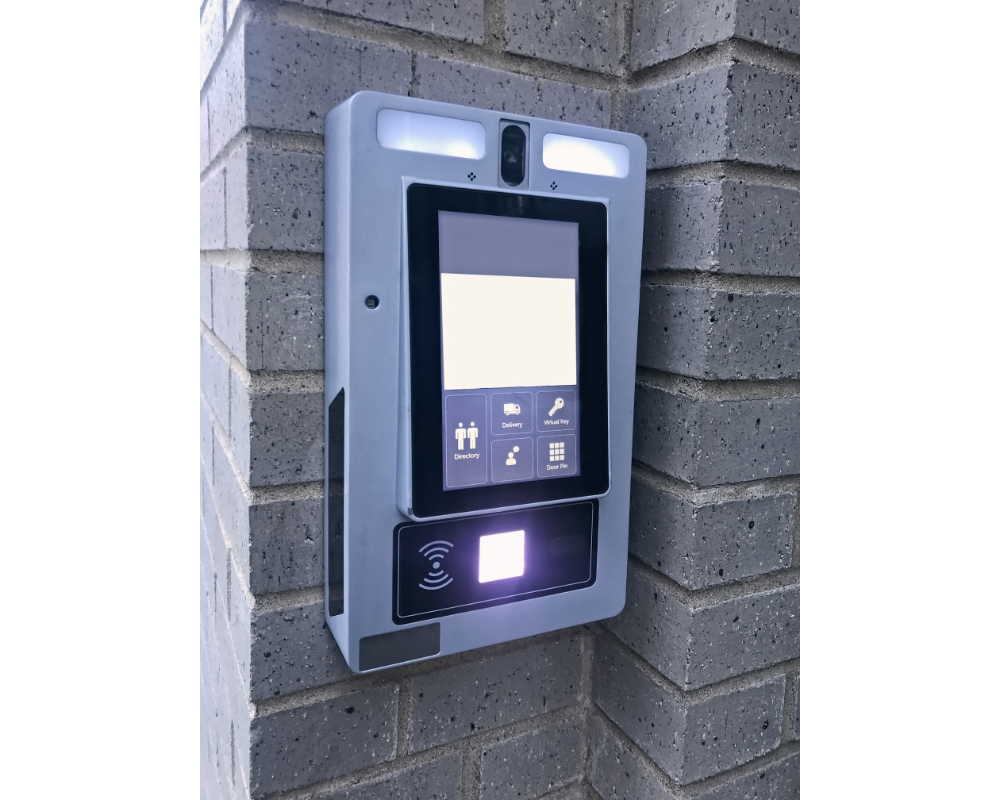
Biometric access control systems are a modern and effective way to secure your home. These systems use biometric security features to authenticate users, making them more secure than traditional passwords or keys. Biometric authentication methods include fingerprint scanning, facial recognition, and voice recognition.
One of the main benefits of using biometric access control systems is that they provide unparalleled security. Unlike traditional keys or passwords, which can be lost or stolen, biometric data cannot be replicated easily. This means you can have peace of mind knowing that only authorized personnel can enter your home.
Another advantage of biometric access control systems is their ease of use. With no need for physical keys or memorizing complex passwords, these systems provide quick and easy access for those with authorized credentials.
Additionally, the convenience factor makes it easy to grant temporary access to guests without worrying about distributing physical keys or sharing passwords.
Overall, biometric access control systems are an excellent choice for anyone looking for added security in their homes. With advanced features such as fingerprint scanning and facial recognition technology, homeowners can rest assured that only approved personnel will gain entry to their property. Furthermore, the ease of use and convenience make it a popular choice among homeowners who want a hassle-free way to protect their homes from unauthorized individuals.
Mobile Access Control Systems
Moving on from biometric access control systems, let’s delve into the world of mobile access control.
As technology advances, more and more homeowners are looking for ways to integrate smart devices into their home security systems. This is where mobile app integration comes in handy.
With a mobile app-integrated system, you can easily manage your home’s access control remotely. The convenience of locking or unlocking doors with just a few taps on your phone cannot be overstated.
Additionally, some systems even allow you to set up alerts that notify you when someone tries to enter your property without authorization.
One example of a mobile access control system worth mentioning is the Kisi Access Control System. It offers features such as cloud-based management and remote unlocking capabilities through its app interface.
Whether it’s controlling who has access to specific rooms or monitoring entry activity, this type of system provides an added level of ease and security for homeowners seeking peace of mind.
The Importance of Access Control Systems for Businesses
Access control systems are important not only for homes but also businesses. They play a vital role in ensuring employee safety and protecting valuable assets from unauthorized access.
One of the primary reasons access control systems are crucial for businesses is that they help regulate who can enter specific areas within an organization. By implementing access control policies, business owners can restrict entry into sensitive or high-security areas such as server rooms, data centers, and executive offices. This helps prevent unauthorized individuals from accessing confidential information or stealing valuable equipment.
Access control systems also allow business owners to monitor and track employee activity within their organization. They provide an audit trail that records when employees entered certain areas, how long they stayed there, and what actions they took while inside. This allows businesses to quickly identify suspicious activity, investigate potential security breaches, and take appropriate action if necessary.
By investing in an access control system for your business, you’ll be taking an important step towards safeguarding your employees’ safety and securing your valuable assets. Properly implementing access control policies and regularly monitoring employee activity can create a secure environment where everyone feels safe, and productivity thrives.
Choosing the Right Access Control System for Your Needs
When it comes to choosing the right access control system for your needs, there are several factors you need to consider.
One of these is the installation process. Some systems may require a professional installation, which can add to the overall cost, while homeowners can easily install others.
The cost comparison is another important factor when selecting an access control system. It’s essential to compare the prices and features of different systems before making a decision.
Remember that some more expensive systems offer additional features such as remote monitoring or integration with other home security equipment.
In summary, when choosing an access control system for your home, it’s crucial to prioritize your needs and budget. Consider the installation process and whether you’ll need professional assistance or not.
Additionally, don’t forget to compare the costs and features of different systems so that you can make an informed decision based on your specific requirements.
Installing and Maintaining Access Control Systems
After choosing the right access control system for your needs, it is time to install and maintain it.
Some people believe that accessing security equipment installation manuals online will save them money over hiring professionals. However, this theory is not always true.
Installing an access control system requires technical expertise and knowledge of electrical wiring systems. If you are not familiar with these areas, attempting a DIY installation can result in significant damage to your property or even personal injury. It may be cost-effective initially, but it could end up costing more in repairs in the long run.
To ensure proper installation and maintenance of your access control system, it is recommended to hire licensed professionals who have years of experience handling home security equipment. Not only do they possess the necessary skills to complete the job efficiently, but they also know how to troubleshoot issues that may arise during installation or regular use.
Cost-effective Options:
- Look for discounts on package deals offered by reputable companies.
- Consider purchasing refurbished equipment from reliable sources.
- Ask about financing options available at the time of purchase.
- Choose a subscription plan that fits within your budget.
- Compare prices between different brands or models.
Remember that investing in high-quality home security equipment, such as an access control system, can provide peace of mind knowing that you have taken measures to protect yourself and your loved ones against potential threats.
By following these DIY tips and being mindful of cost-effective options when installing or maintaining your access control system, you can further enhance your safety without breaking the bank.
Frequently Asked Questions About Access Control Systems
How do access control systems differ from the traditional lock and key systems?
Access control systems differ from traditional lock-and-key systems in several ways.
First, access control systems offer greater security than traditional locks as they require specific credentials to gain entry. These credentials can include passwords, biometric data, or proximity cards.
Another advantage of access control systems is the ability to monitor who enters and exits a building, providing detailed records for security purposes.
However, these systems also have their disadvantages, such as the initial cost of installation and maintenance fees. Additionally, if the system malfunctions or power is lost, it could potentially leave individuals locked out or allow unauthorized access.
As a home security equipment expert, I recommend carefully considering the advantages and disadvantages before deciding which type of system best suits your needs.
Can access control systems be integrated with other home security equipment?
Access control systems are incredibly versatile and can be integrated with a range of other home security equipment.
For example, they often work well in conjunction with cameras, allowing you to view footage remotely and verify the identity of those entering your property.
Access control systems can also be integrated into smart home systems, meaning that you can manage your security alongside other aspects of your household from one central location.
This compatibility means homeowners have more options than ever when designing their ideal security setup.
As a home security expert, I always recommend looking for products that offer this kind of integration, as it helps to create a comprehensive system that’s easy to use and highly effective at keeping properties safe.
Are there any legal requirements for installing access control systems in residential properties?
When installing access control systems on residential properties, some legal requirements need to be considered.
These requirements vary depending on the state or country you live in, but generally speaking, homeowners should comply with building codes and obtain permits before installation.
Additionally, alarm systems and surveillance cameras may also have their own set of regulations that must be met.
Homeowners need to do their research and consult with a professional home security equipment expert to ensure they meet all the legal standards for their specific location.
How Do You Prevent Unauthorized Access to Access Control Systems Themselves?
As a home security equipment expert, I cannot stress the importance of preventing unauthorized access to your access control systems enough.
Security protocols and authentication measures are critical to keeping your system safe from hackers or intruders trying to gain entry into your property.
But how do you ensure that only authorized personnel can access the system itself?
The answer lies in implementing strict user permissions, regularly updating passwords, and using multi-factor authentication methods.
By taking these precautionary steps, you can minimize the risk of anyone gaining unauthorized access to your access control system and protect yourself and your property against potential threats.
Can access control systems be remotely monitored and managed?
Access control systems can be remotely monitored and managed, providing a convenient way for homeowners to maintain their security from afar.
However, with remote accessibility comes the potential for security breaches if not properly secured.
As a home security equipment expert, I recommend implementing strong passwords and multi-factor authentication measures to protect against unauthorized access.
It’s also important to keep up-to-date on software updates and regularly review system activity logs to monitor any suspicious behavior.
By taking these precautions, homeowners can enjoy the convenience of remote management while keeping their homes secure.
Taking Control: Making the Most of Your Access Control System
In conclusion, access control systems are a game-changer for home security. They offer more flexibility and convenience than traditional lock and key systems while providing an added layer of protection against unauthorized entry.
With the ability to integrate with other home security equipment, such as cameras and alarms, they can create a comprehensive system that covers all aspects of your property.
While there may be legal requirements for installing access control systems in some areas, the peace of mind they provide is priceless. As an expert in home security equipment, I highly recommend considering access control systems for any residential property.
From preventing break-ins to monitoring who has access to specific areas within your home, these systems truly have it all. So why settle for outdated lock and key technology when you could have the ultimate protection at your fingertips?
The choice is clear: upgrade to an access control system today!
